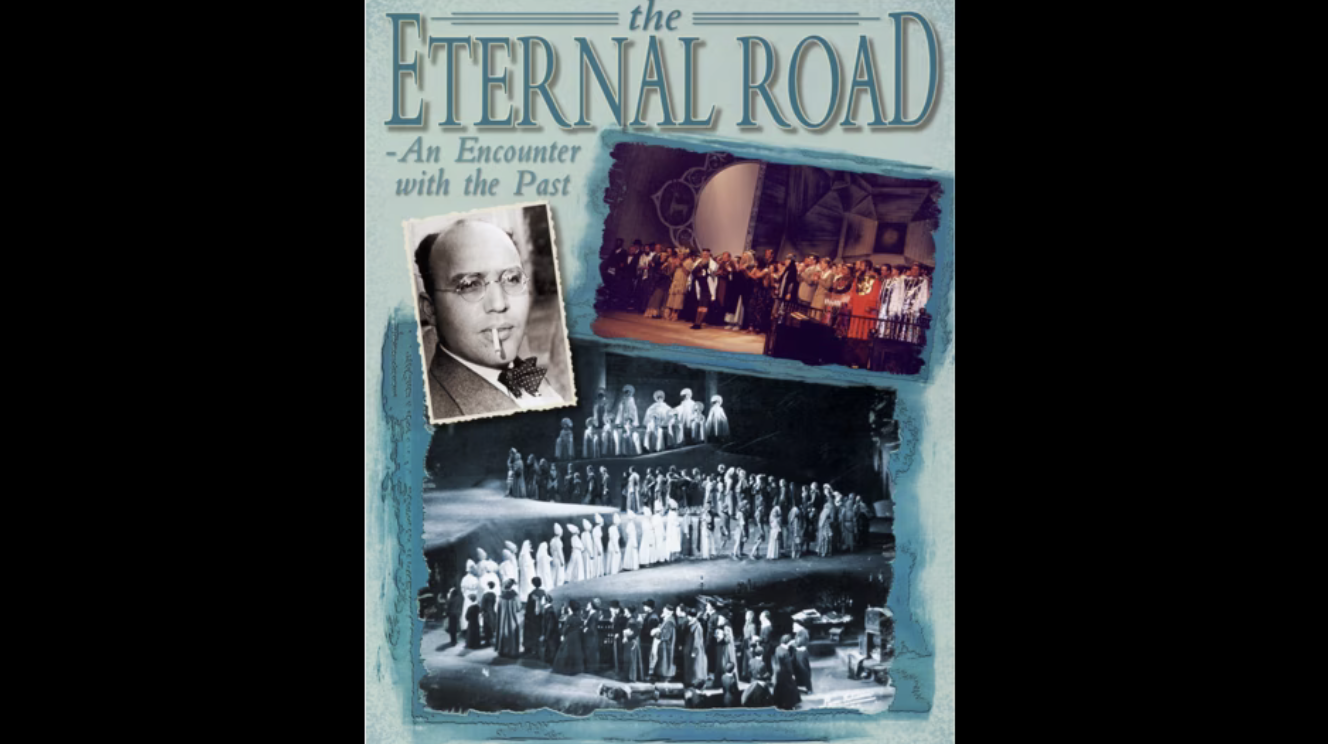The Eternal Road
About the Film
Documents the restaging in Chemnitz, Germany of the musical drama, The Eternal road, which was first staged in New York City in 1937. Inspired by Meyer Weisgal, it was written by Franz Werfel, composed by Kurt Weill, and produced by Max Reinhardt. Beginning with the story of Abraham and continuing through Jewish history up until the Nazi's rise to power, it was intended to symbolize the threatened condition of the Jews of Germany.
By PETER M. NICHOLS
Documentaries about musical productions don't come along every week, but now there are two. In both cases, extravaganza would be a better term. Ron Frank's "Eternal Road: An Encounter With the Past," from Ergo Media, tells of an epic musical drama about the history and plight of the Jews, which was written in 1934, performed in 1937 in New York and revived in 1999 in Chemnitz, Germany. Allan Miller's "Turandot Project," released this week by Zeitgeist Video, follows a huge production of Puccini's "Turandot" as it is mounted in Florence in 1997 and travels to Beijing in 1998. Different in era, locale and artistic provenance, the musical productions are similar in scope and ambition. With Hitler in power and German Jews in flight, Meyer Weisgal, an American Zionist, approached the Austrian
producer Max Reinhardt, himself expelled from Germany, to put together a musical pageant about the Jewish experience from the days of Abraham.
The Austrian writer Franz Werfel was recruited for the libretto. Kurt Weill, who had escaped across the French border one step ahead of the Gestapo, agreed to do the music. The view from their workplace at Reinhardt's palatial mountain estate near Salzburg was directly into Hitler's retreat at Berchtesgaden. "The Eternal Road," which begins with a 1930's Jewish congregation trapped inside its
In the habit of inviting its own exiles to return, the city of Chemnitz was preparing to stage "The Eternal Road" at the same time that Mr. Frank arrived with his father, Erwin, a Chemnitz refugee, to make a film about a new synagogue and the Chemnitz wartime experience. Stirring in scenes of the revival, the documentary deftly alternates from the present to the past.


